Eating clean protein sources plays an important role in keeping your body’s toxic load down to a minimum. Keep in mind the higher up on the food chain you go, the more environmental toxins, pesticides and other “undesirables” will accumulate in the food.
Basically, for every step you climb up the ladder, there is a greater chance of accumulating and concentrating toxins found in the environment. Toxic overload can tip the body’s balance toward inflammation, illness, and accelerated aging.
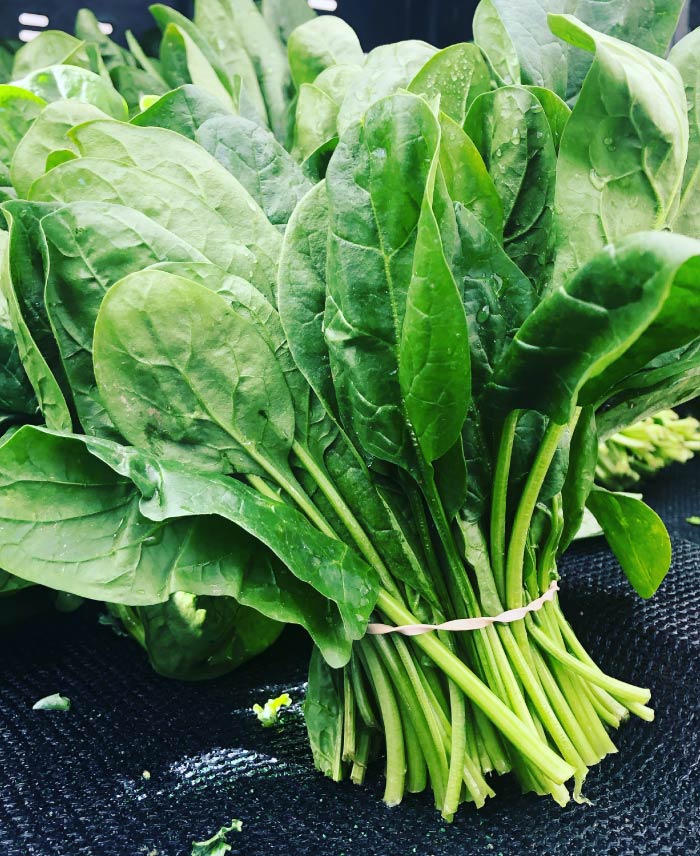
How exactly does the food chain work? Simple…since people eat animals, humans are at the top of the food chain. Next in line would be animals that eat plants and other smaller animals. Then smaller animals that eat plants and even smaller animals. The smallest animals eat only plants. Plants are at the very bottom of the food chain and thus, plant foods are truly the cleanest foods on earth.
Are Organic Protein Sources Best?
While it would be ideal to eat 100% percent organic food, this is usually not possible. It is important to know you will still get far fewer toxins choosing nonorganic plant foods over even certified organic animal foods.
Is a Plant-Based Diet the Answer to Eating Clean?
We aren’t saying you need to be a vegan or even a vegetarian in order to eat clean. We ourselves are not vegans. As far as we know, there are no traditional vegan cultures.
We also know the vegan lifestyle can be extremely difficult to follow. This is even more difficult if you want to eat a nutrient-dense and anti-inflammatory vegan diet (vegan cupcakes are not nutrient dense and aren’t exactly going to boost anybody’s health!)
Instead of going vegan we prefer to just eat lots and lots of detoxifying plant foods, and smaller portions of the highest quality animal foods we can find.
Where’s the Protein?
Let’s not forget that animal foods are not just pure packages of protein. Although meat lovers have an affinity for championing the “Meat Is Protein and Protein Is Meat” notion, the reality is animal foods also contain saturated fat.
While some animal foods contain more fat than others, all animal foods contain fat. It’s not that fat is bad, but most animal food sources deliver a high percentage of saturated fat and animal food sources of saturated fat are not healthy. Even skinless chicken breasts, which are considered very low-fat animal foods, contain most of their few fat calories from undesirable saturated fat.
Additionally, the animal foods most people buy today are not raised on green grass (they are raised in very unsanitary factories). Their diets are not healthy, which leads to the animals being unhealthy. Not only are the animals unhealthy, they also have a very unhealthful omega-3 / omega-6 fat profile. This means their meat has too much pro-inflammatory omega-6 fat and too little anti-inflammatory omega-3 fat.
If you are getting omega-3 fats from an animal food such as fish, then it is good fat, but the vast majority of the fat we get from animal foods is not from omega-3-rich fish, it’s from four-legged animals that contain a large amount of saturated fat, too much omega-6 fat and very minimal amounts of omega-3 fat.
Even if you decided you wanted to eat 100 percent vegan and never ever touch a piece of chicken or beef again, you could still actually get all of the protein you need from unrefined “whole” plant foods, assuming you ate enough calories. For example, did you know the following facts?
- Spinach is 52% protein
- Broccoli is 38% protein
- Black beans are 26% protein
- Quinoa is 14% protein
- Walnuts are 10% protein
Clean Protein (and Other Good Stuff) from Plant Foods
Because protein is an essential part of plant cells, at least some protein is found in all plant foods. We bet you didn’t know that per calorie, cooked spinach has more than twice as much protein as a chicken sandwich! It’s not that we don’t eat meat; it’s just that we don’t eat meat specifically for the protein because we know we can get protein from plant foods if we eat enough calories.
Not only do plant foods supply plenty of amino acids and protein, but they come packaged with all sorts of anti-aging and health-promoting perks in the form of antioxidants, fiber, and phytonutrients that are not found in animal foods. Choosing to eat a variety of the following foods will supply your body with adequate protein containing all the essential amino acids.
Protein-Rich, Super Clean Plant Foods
- Nuts and nut butters
- Seeds and seed butters, such as tahini
- Beans
- Legumes
- Lentils
- Tofu
- Edamame
- Tempeh
Is Combining Plant Proteins Necessary to Form a “Complete” Protein?
No. Do not worry about the outdated advice that you need to mix and match your foods to get a complete protein. Your body cannot use protein directly from the food you eat anyway; it must convert food protein into amino acids and then use the amino acids to repair your body, regulate hormones, and so on. Because your body stores and releases the amino acids it needs over a 24-hour time period, it is totally unnecessary to go to the hassle of combining foods to achieve protein completeness.
While it is true some plant foods have more essential amino acids than others, in the end your body gets the protein it needs from the foods you eat on a long-term basis, not from a single meal. For example, legumes like cooked dried beans, dried peas, and lentils are low in sulfur-containing amino acids such as methionine but they are high in another amino acid called lysine. Grains are just the opposite. So if you eat both foods during the course of a day or even a couple days apart, you still get all the essential amino acids your body needs. What is more, certain plant foods, such as soy, contain adequate amounts of all essential amino acids so no specific effort to add additional proteins is required at all. In fact, even the American Dietetic Association has stated the following:
Plant sources of protein alone can provide adequate amounts of the essential and non-essential amino acids, assuming that the dietary protein sources from plants are reasonably varied and that caloric intake is sufficient to meet energy needs. Whole grains, legumes, vegetables, seeds and nuts all contain essential and non-essential amino acids.
SOURCING MEATS
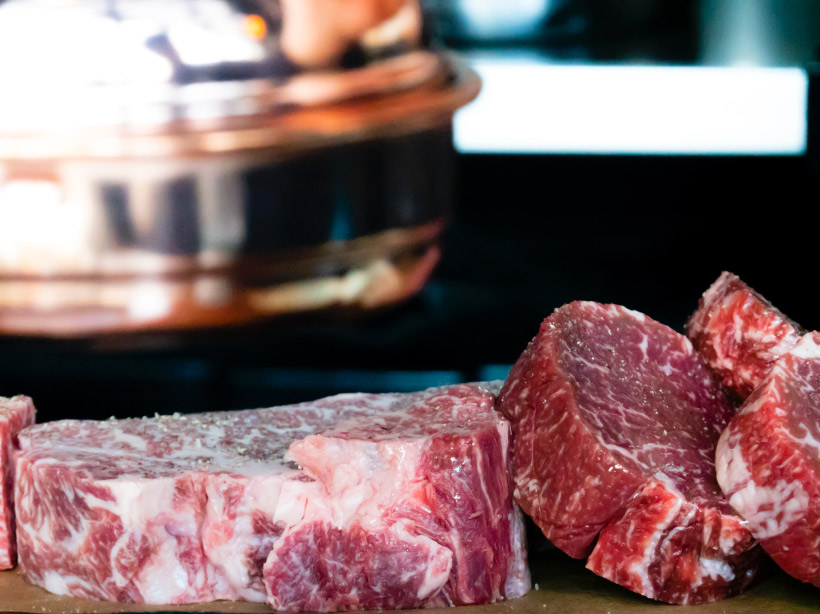
MODERN FARMING
You would naturally assume organic animal foods would be the cleanest source of animal protein. It is true that choosing organic animal foods, means you’re taking a huge step towards eating quality and healthier animals. Eating organic animals in comparison to conventionally raised animals will lessen your exposure to pesticide residues, synthetic hormones, antibiotics, and toxins. Yet, when it comes to buying the cleanest and highest-quality animal foods, it’s essential to think about going beyond organic. The diet of the animal is incredibly important as well. This is because the animal’s diet reflects the health of the animal. This ultimately affects the health of the person who eats it.
It’s important to understand modern conventional farming is designed to grow and fatten animals at an unnaturally rapid rate. The animals eat a calorie-rich, grain-based diet rather than the nutrient-rich, grass-based diet they would naturally consume in the wild.
Cows are ruminants, meaning their digestive systems are designed for eating grasses. Inappropriately feeding animals a deviant diet of dry grain is a direct contributor to those animals developing pathogens. These pathogens can include E. coli (in cattle), salmonella (in poultry), and more. Did you know that mad cow disease is unknown among cattle fed entirely on pasture and hay? When cows eat the foods nature intended the cows to eat, they are healthier. You simply can’t separate the health of the animal you eat from your own health.
In addition, when factory-farmed cows eat grains, they aren’t as healthy as they would otherwise be. Unhealthy cows get sick (and need antibiotics). So, even if ranchers feed cows organic grain, that doesn’t mean grain per se is optimal for cow health. Ultimately, grain-fed beef is not desirable for you either. The same logic applies to sugar. If absolutely necessary, it’s better to eat organic sugar over conventional sugar. However, organic-stamped sugar cubes isn’t optimal for health.
Grain-fed animals and the milk from grain-fed animals are less nutritious than grass-fed, pastured animals. Compared with grass-fed meat, grain-fed meat has only one quarter as much vitamin E and one eighth as much beta-carotene. In addition, the composition of the fats present in eggs, chicken, meat, and dairy directly reflects the foods the animals consume. Because fo this, animals raised on conventional, commercial grain feeds (even organic grain feed) have less than desirable fat profiles.
Conventionally raised animals fed grain-based diets have far more pro-inflammatory omega-6 fat and much less anti-inflammatory omega-3 fat. The balance between these two types of fat is essential to our overall health. Most people eating a modern-day diet already consume far too many omega-6 fats and far too few omega-3 fats. Too much omega-6 fat and not enough omega-3 fat can disrupt many of the body’s functions. This can effect the immune system, exacerbate inflammatory conditions such as asthma and allergies, decrease the body’s sensitivity to insulin, increase the risk of type 2 diabetes, and even contribute to obesity and heart disease. Eating conventionally raised animals containing high amounts of omega-6 fat is one of the major contributing factors as to why our omega fat ratio is so out of whack. The fat in grass-fed animals is much closer to a healthy balance.
Keep in mind, it really doesn’t matter whether the animal’s diet consists of ordinary grain, genetically modified grain, or organic grain. Feeding large amounts of any type of grain to a grazing animal will negatively affect the quality of the animal’s meat and milk. So, while organic meat may contain fewer unwanted toxins, it is still nutritionally inferior to grass-fed meat.
CLEANLY SOURCED MEATS
Pastured chickens that are raised on fresh pasture and are free to roam and forage for a naturally healthful chicken diet of insects, worms, grass, and wild plants are also nutritionally superior to caged chickens fed an unnatural diet of grains alone. A chicken allowed to consume a natural chicken diet has a more balanced ratio of omega-6 fat to omega-3 fat, and the chickens themselves are leaner because they get to exercise. The eggs from pastured chickens are also more healthful. Read more about how to buy the best and cleanest chickens and eggs, why you don’t want to buy chickens that were fed a vegetarian diet and why the term “free range” is very misleading.
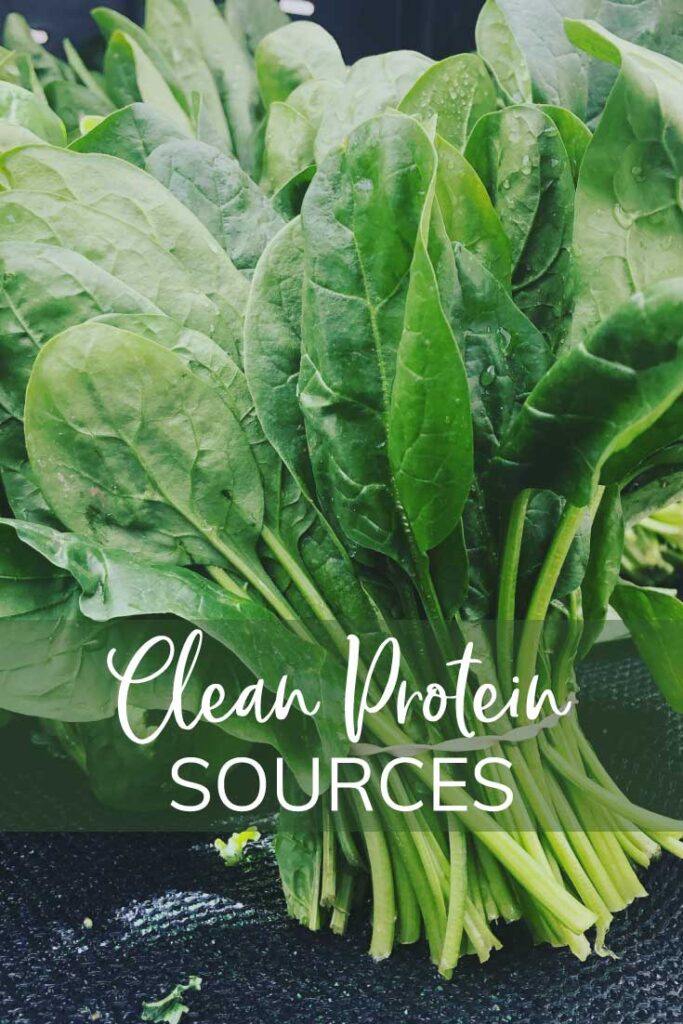
All of this to say, when choosing animal foods, there is more to a healthful animal product than picking organic. And do keep in mind that the two diets most associated with longevity and reduced cardiac morbidity are the traditional Japanese diet and the Mediterranean diet. Both of these are noted for incorporating small amounts of animal foods (including fish) and for having a balanced omega-3 to omega-6 fat ratio. On top of this, these diets include plenty of vegetables and minimal amounts of refined foods. Our general advice when it comes to animal foods can be summed up as follows:
- Always look at the animal’s diet; choose only animals with a diet nature intended the animal to eat.
- Choose organic whenever possible.
- Find a dairy-free substitute for milk; there is no nutritional reason to drink milk, and there are plenty of tasty milk substitutes. We prefer hemp milk and hemp cream and cashew milk and cashew cream, for example.
- Eat cheese as a special treat and in very small quantities; cheese isn’t healthful, but we absolutely love it and can’t manage to give it up entirely. (Note: Dr. Cow nut cheeses are the only non-dairy cheeses we have found that taste amazing. Made from 100% raw, organic nuts, Dr. Cow cheeses are not imitation cheese; they are made using the same procedures used for making traditional dairy-based cheese. Their cheeses are made with absolutely no preservatives, stabilizers, artificial ingredients or additives of any kind. Dr. Cow cheeses are 100% dairy and lactose free, contain no gluten, no casein, and no soy. They are 100% organic and vegan. Visit www.Dr-Cow.com for more info.)
- Recognize that fatty fish will give you the most nutritional bang for your animal food buck owing to its omega-3 fats (EPA and DHA), and nutrients (vitamins B12 and D, iron, and zinc).
- Eat animal foods in moderation; consider being an ovo-vegetarian (where the only animal food you eat is pastured eggs) until dinnertime. This in addition to eating animal foods only as a modest part of your dinner, not the main attraction.
The Most Healthful Animal Food to Eat
- Wild fish, the fattier the better!
Animal Foods to Eat in Moderation
- Pastured eggs
- Shellfish like shrimp and scallops
- *Lamb
- *Beef
- *Chicken
- *Duck
(*pastured)
Animal Foods to Eat Sparingly
- Organic, pastured cheese
- Organic, pastured kefir
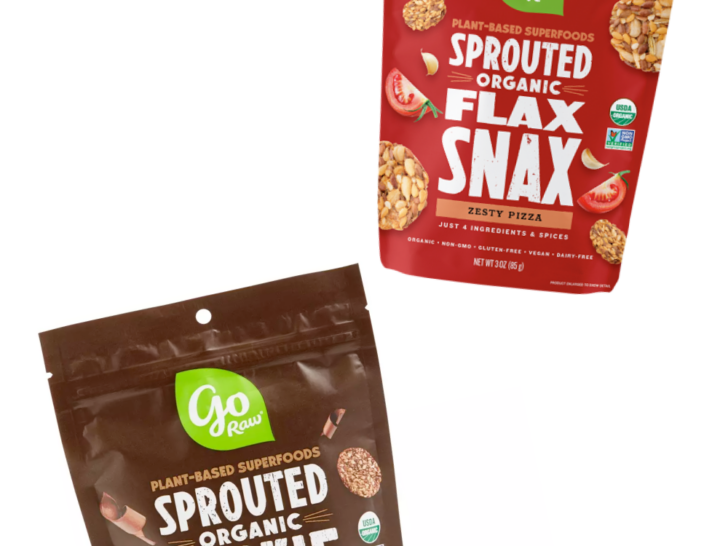
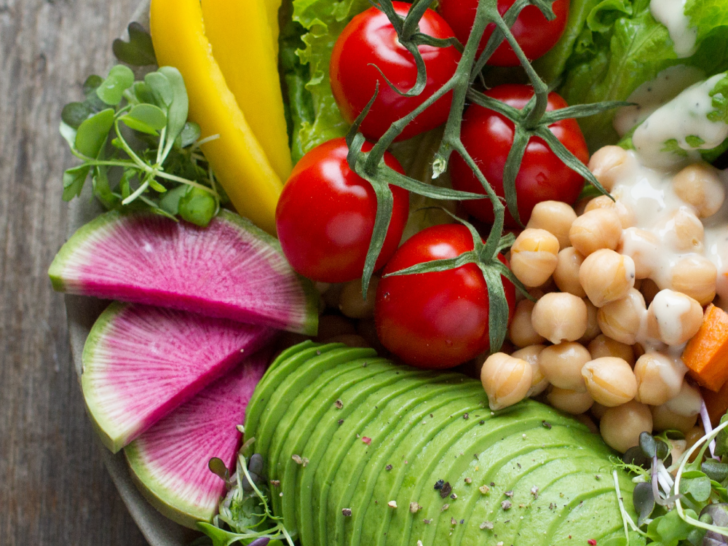
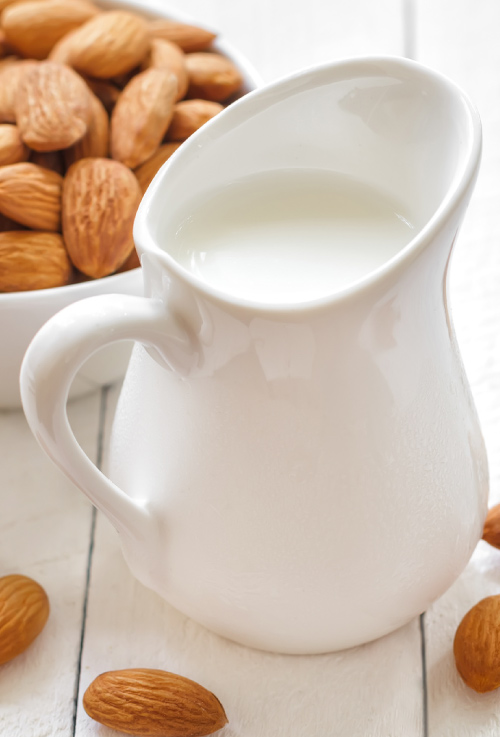
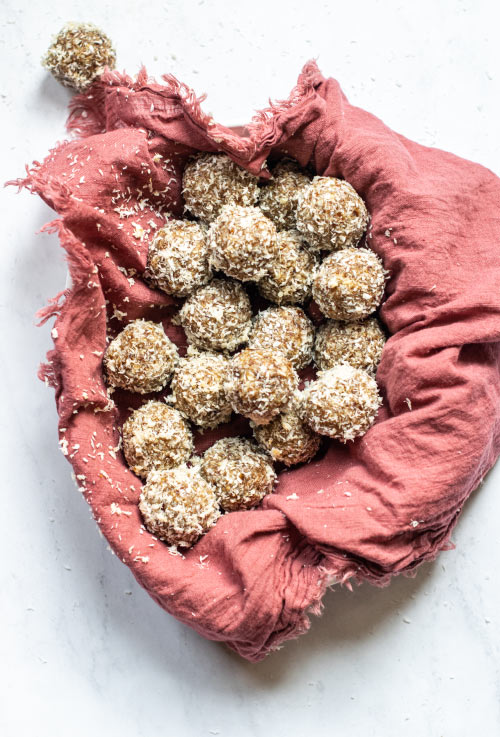

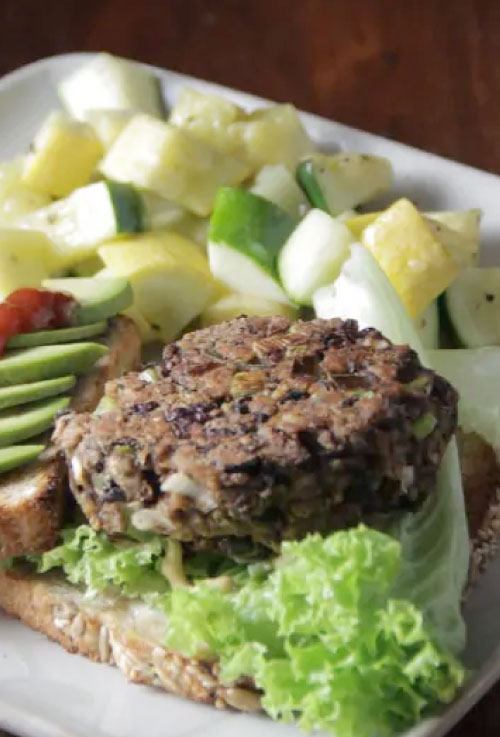

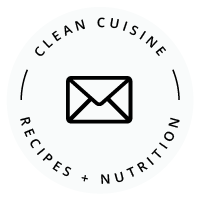
Lori
Tuesday 26th of September 2023
I enjoyed your article. However, A2 raw milk has been nutritional and beneficial in my diet for my health. It's nutritional value is amazing. I'm curious as to why you think it's not.
Sincerely,
Aimee Niedosik
Tuesday 31st of October 2023
Hi Lori, Glad to hear it's helped you -- we shy away from dairy and this articles explains our reasons: https://cleancuisine.com/top-10-reasons-why-milk-does-not-do-a-body-good/
Aimee